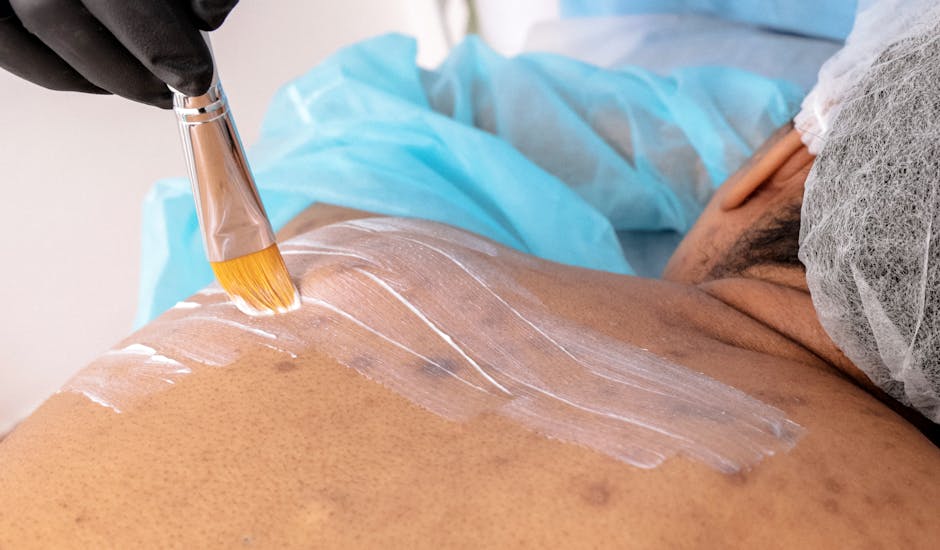Acne is a common skin condition that affects people of all ages. It is caused by a combination of factors, including excess oil production, clogged pores, and bacteria. While there is no one-size-fits-all approach to treating acne, there are a variety of effective treatments available.
**Topical Treatments**
Topical treatments are applied directly to the skin and are often the first line of defense against acne. They contain ingredients that help to reduce inflammation, kill bacteria, and unclog pores. Common topical treatments include:
* Benzoyl peroxide: Benzoyl peroxide is an antibacterial agent that helps to kill the bacteria that cause acne. It is available in both over-the-counter and prescription strengths.
* Salicylic acid: Salicylic acid is a beta-hydroxy acid that helps to exfoliate the skin and unclog pores. It is also available in both over-the-counter and prescription strengths.
* Retinoids: Retinoids are derivatives of vitamin A that help to reduce inflammation and improve skin cell turnover. They are available in both topical and oral forms.
**Oral Medications**
When topical treatments are not effective, oral medications may be prescribed. These medications work by reducing inflammation, killing bacteria, or regulating hormones. Common oral medications include:
* Antibiotics: Antibiotics are used to kill the bacteria that cause acne. They are typically prescribed for short periods to avoid the development of antibiotic resistance.
* Birth control pills: Birth control pills can help to regulate hormones that contribute to acne. They may be prescribed for women who have hormonal imbalances.
* Isotretinoin: Isotretinoin is a powerful medication that is used to treat severe acne. It works by reducing oil production and inflammation.
**Procedures**
In some cases, procedures may be necessary to treat acne. These procedures include:
* Extractions: Extractions are performed by a dermatologist to remove blackheads and whiteheads.
* Microdermabrasion: Microdermabrasion is a procedure that uses a fine abrasive material to remove the top layer of skin.
* Laser therapy: Laser therapy uses light energy to target and destroy acne-causing bacteria.
**Lifestyle Changes**
In addition to medical treatments, several lifestyle changes can help to improve acne. These changes include:
* Washing your face twice a day with a gentle cleanser
* Using non-comedogenic skincare products
* Avoiding touching your face
* Managing stress
* Eating a healthy diet
**Conclusion**
Acne can be a frustrating condition, but there are a variety of effective treatments available. By working with a dermatologist to find the best treatment plan for you, you can achieve clear, healthy skin.

